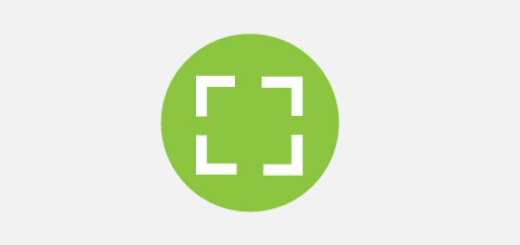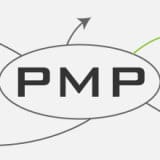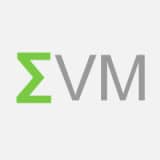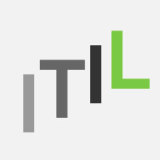How to Get the Required 35 Hours of PMP Training Cheap and Easy?

The PMP training required for Project Management Certification is termed as “35 Contact Hours of Project Management Education” by PMI in the PMP Handbook.
If you currently hold the CAPM® Certification, you will be granted an exempt from this 35 Contact Hours of Project Management Education requirement!
If you are a graduate of a GAC accredited degree program you will receive a 12-month credit towards the work experience requirement. Also, you can use the GAC course work to fulfill the 35 education contact hour requirement. GAC stands for the Global Accreditation Center for Project Management Education Programs.
The term “contact hours” creates a lot of confusions as “contact” usually means direct contact, many PMP aspirants assume that the education must be obtained from a classroom (sadly that was the very reason why I postponed my PMP Certification preparation for over 1 year as I could not set aside the time to attend project management training classes… )
The reality is that PMI does NOT stipulate that the PMP training must be obtained through face-to-face classroom education, it allows the project management education to be taken in any form as long as the course involves an assessment at the end (e.g. online project management training with mock exams or podcast style training with a final exam, etc.).
Article Highlights
Types and Benefits of PMP Training to Get the 35 Contact Hours
PMP project management training can be broadly divided into three types:
- Classroom Face-to-face Training
- Online Training (2 types)
- Online Course
- Downloadable PodCast Training
Note: Beginning 2021, PMI no longer allows PMI Authorized Training Partner to offer pre-recorded online courses to be advertised as PMP Exam Prep courses. However, most of the PMP Exam Prep online course available, including the acclaimed PM PrepCast™, can still satisfy the 35 contact hours requirement! That means you are NOT restricted to choose only courses from PMI ATP!
For instance, the PM PrepCast™ fulfils the definition of “Contact Hours” (i.e. project management training) and one can easily get the Contact Hours approved with the course outline, description and details of the course.
Benefits and downsides of the various types of training are listed below for your comparison:
1. Classroom Face-to-face Training
Face-to-face exam prep course is the more traditional type of PMP training in which an instructor presents to a group of students and answers any questions the students may have.
Benefits
- The instructor can attend to the questions and queries of individual students in an interactive way.
- One may be able to find a study partner from the course to co-study to PMP success.
- The instructor or your fellow classmates may impose certain pressure on you to do the homework and reading along the course.
- Most of Aspirants would have taken face-to-face training classes before.
- Some face-to-face training may be organized in a bootcamp format in which the class runs for 4 days in a row and the students will take the actual PMP exam on day 5. This arrangement allows the students to focus fully on the PMP exam for the whole week. It is often reported that PMP bootcamps score a higher pass rate.
Downsides
- Face-to-face PMP courses are very expensive, often around US$1000 or above.
- If there is none PMP exam prep course available in your area, chances are that you will need to travel a long way to the classroom.
- If a classmate of you is a slow learner, the course progress may be adversely affected. The teacher will have to take care of the slow learners to make sure they understand the subject matters.
- In addition to the course duration, Aspirants will need to also account for the time spent on transit from and to the classroom.
- Busy professionals may not be able to take several days off to attend the bootcamp type classroom training.
2. Online PMP Training
Online PMP training and downloadable podcast PMP training both offer flexibility not achieved by classroom training, students are able to watch the video lessons on their intelligent phones (e.g. iPhone, Andriod, Blackberry) and watch the lessons on the go whenever they have free time.
Benefits
- Online PMP training is much cheaper than normal classroom training.
- Downloadable podcast lessons allow the students to study anywhere, anytime (even during commuting and driving) using an iPod or intelligent phone. (Note: PMI ATP are no longer allowed to offer pre-recorded lessons as PMP Exam Prep courses from 2021)
- Video lessons are also great for visual learners as there are lots of illustrations and charts.
- Unlike classroom training, online PMP training allows students to proceed at their own pace without affecting others.
- The best part is that one can repeat a lesson to further understand the topic whenever needed.
- Allows busy professionals to obtain the required contact hours without causing disruptions to their lives.
Downsides
- The instructors may not be able to answer your questions interactively as you may need to ask the questions through email or discussion forums.
- Online courses require self-discipline. For those who have not taken an online course before, they may find it hard to progress through the course as there is not a course schedule to follow. They will have to plan the lessons themselves.
About PMP Courses not offered by PMI Authorized Training Partner (A.T.P.)
Since pre-recorded online courses offered by PMI Authorized Training Partner (A.T.P.) are no longer allowed to be advertised as PMP Exam Prep courses, can we still make use of online pre-recorded courses to satisfy the 35 Contact Hours requirement?
Yes! The only difference is that as the courses are no longer considered “pre-approved” by PMI, you will have to submit also the training/education institute, course outline, number of qualifying hours, course completion certificate, etc. to get approval from PMI in your PMP application. Below is the statement outlined in the PMP Exam Handbook:
Copies of certificates and/or letters from the training institute(s) for each course recorded on the application to meet the required contact hours of project management education.
FAQ: Contact Hours vs PDU
The confusion between contact hours and professional development units (PDU) arises from the fact that the same PMP training course can allow different people to obtain either contact hours and PDU (but not simultaneously).
Aspirants and PMP training providers alike may be confused. I have seen some training institutes advertise their PDU courses to Aspirants saying that they can earn the 35 PDUs for PMP application. Of course, this is wrong!
But it is not difficult to differentiate between the Contact Hours and PDUs. Just remember:
- If you wish to obtain the PMP credential, you need “Contact Hours” (i.e. 35 contact hours of project management education).
- If you have obtained the PMP credential, you need “PDU” (i.e. 60 PDU in 3 years) for your PMP Certification renewal.
So, if you are reading this PMP guide, you should aim to get the 35 PMP Contact Hours.
What’s Next?
Once you have identified your preferred way of obtaining the 35 contact hours of project management education for your PMP Exam, take action now to begin your PMP journey.
You will also need to obtain or purchase the PMBOK® Guide guide, at least 1 PMP study guide and practice exams as your study companion.
Most Popular PMP Certification Exam Articles
- My Exam Prep Tips and Free Resources (I got 4P and 1 MP)
- How to Get 35 Contact Hours Fast and Easy?
- Detailed Comparision of online PMP Courses
- Over 1000+ FREE Quality Mock Exam / Practice Questions
- A FREE Guide to Formulas and Calculation (with explanation and sample questions)
- 47 Commonly Confused Terms with detailed explanation




 Hi, my name is Edward Chung, PMP, PMI-ACP®, ITIL® Foundation. Like most of us, I am a working professional pursuing career advancements through Certifications. As I am having a full-time job and a family with 3 kids, I need to pursue professional certifications in the most effective way (i.e. with the least amount of time). I share my exam tips here in the hope of helping fellow Certification aspirants!
Hi, my name is Edward Chung, PMP, PMI-ACP®, ITIL® Foundation. Like most of us, I am a working professional pursuing career advancements through Certifications. As I am having a full-time job and a family with 3 kids, I need to pursue professional certifications in the most effective way (i.e. with the least amount of time). I share my exam tips here in the hope of helping fellow Certification aspirants!






Hello, very useful info – but (I really dont mean to complain here)… I think many viewers would like a step by step walkthrough of the cheapest way and fastest way to attain PMP (which vendor to use, when to apply, how long to set aside on average for study etc). Who is the cheapest accredited online vendor you know? Thanks!
Thanks for your suggestion GPillai. You may find the my sharing here:
https://edward-designer.com/web/pmp-certification-cost-consideration/